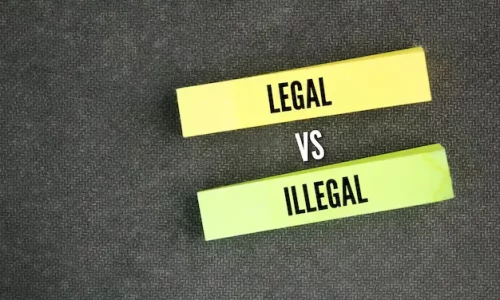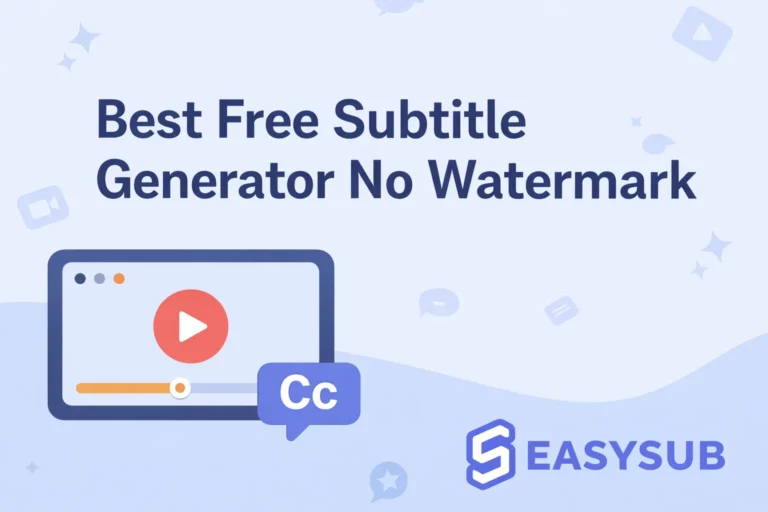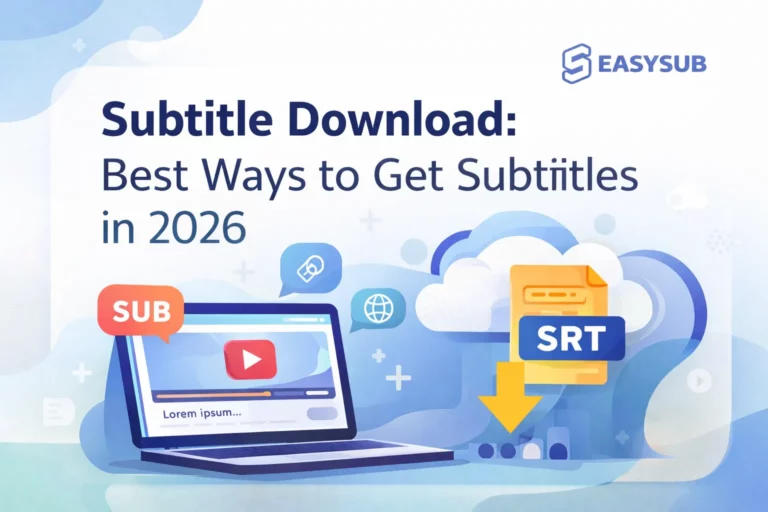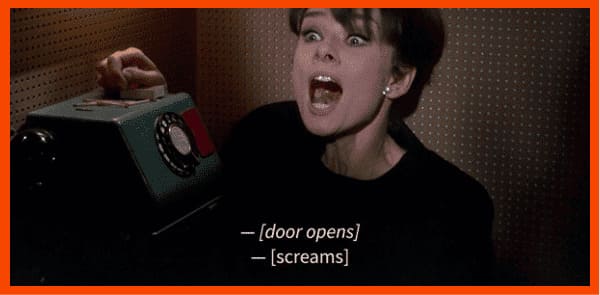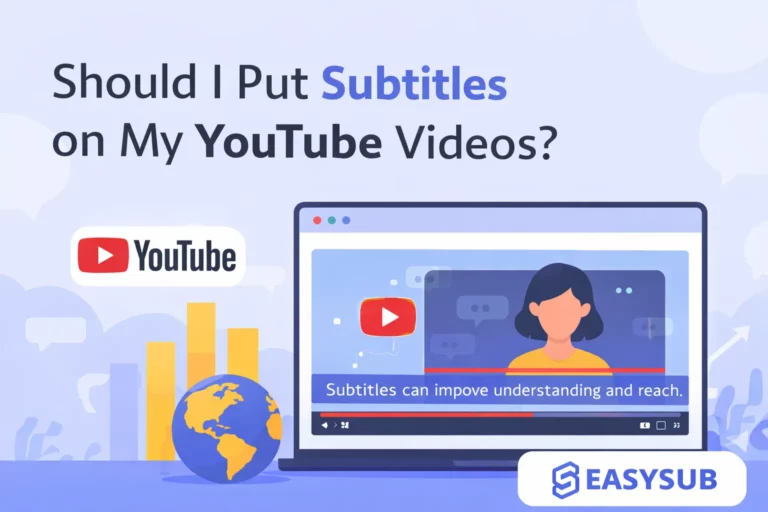সাবটাইটেল ডিজিটাল কন্টেন্টের একটি অপরিহার্য অংশ হয়ে উঠেছে—যদিও তা অ্যাক্সেসযোগ্যতা, ভাষা শিক্ষা, অথবা বিশ্বব্যাপী কন্টেন্ট বিতরণের জন্যই হোক। কিন্তু যত বেশি স্রষ্টা এবং দর্শক অনলাইন সাবটাইটেল ফাইলের দিকে ঝুঁকছেন, ততই একটি সাধারণ প্রশ্ন ওঠে: সাবটাইটেল ফাইল কি অবৈধ? উত্তরটি সবসময় সাদা-কালো নয়। সাবটাইটেলগুলি কীভাবে প্রাপ্ত, ব্যবহৃত বা ভাগ করা হয় তার উপর নির্ভর করে, সেগুলি হয় পুরোপুরি আইনি হতে পারে—অথবা কপিরাইট আইনের লঙ্ঘন। এই ব্লগে, আমরা সাবটাইটেল ফাইলগুলির আইনি ভূদৃশ্য অন্বেষণ করব, সাধারণ ভুল ধারণাগুলি স্পষ্ট করব এবং দেখাব যে AI সরঞ্জামগুলি কীভাবে ইজিসাব আপনাকে আইনি ও দক্ষতার সাথে সাবটাইটেল তৈরি এবং ব্যবহার করতে সাহায্য করবে।.
সুচিপত্র
সাবটাইটেল ফাইল কি?
সাবটাইটেল ফাইলগুলি হল একটি ফাইল ফরম্যাট ভিডিও বা অডিও কন্টেন্টে ভাষাগত লেখা উপস্থাপন, ডায়ালগ, বর্ণনা, শব্দ বর্ণনা ইত্যাদি সিঙ্ক্রোনাইজ করার জন্য ব্যবহৃত হয় যাতে দর্শকরা ভিডিও বার্তাটি আরও ভালভাবে বুঝতে পারে। ভিডিও ফ্রেমের বিপরীতে, সাবটাইটেল ফাইলগুলি সাধারণত অস্তিত্ব থাকা স্বতন্ত্র টেক্সট ফাইল হিসেবে ব্যবহার করা হয় এবং টাইমকোডের মাধ্যমে ভিডিও কন্টেন্টের সাথে সিঙ্ক্রোনাইজ করা হয়।.
ক. সাধারণ সাবটাইটেল ফাইল ফরম্যাট:
- .SRT (সাবরিপ সাবটাইটেল): সবচেয়ে সাধারণ এবং সামঞ্জস্যপূর্ণ সাবটাইটেল ফর্ম্যাট, যা ইউটিউব, ভিএলসি প্লেয়ার, সোশ্যাল মিডিয়া প্ল্যাটফর্মগুলিতে ব্যাপকভাবে ব্যবহৃত হয়;
- .VTT (ওয়েবভিটিটি): ওয়েব ভিডিও প্লেয়ার (যেমন HTML5 প্লেয়ার) এবং অনলাইন ভিডিও প্ল্যাটফর্মের জন্য, শক্তিশালী সামঞ্জস্য সহ;
- .SUB/.IDX, .SSA, .TXT: অন্যান্য নির্দিষ্ট-উদ্দেশ্য বা ঐতিহাসিক ফর্ম্যাট, যা এখনও কিছু প্ল্যাটফর্মে ব্যবহৃত হয়।.
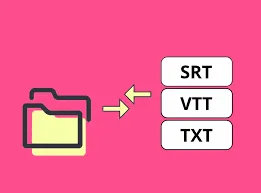
- .ASS (অ্যাডভান্সড সাবস্টেশন আলফা): সমৃদ্ধ স্টাইল এবং টাইপোগ্রাফি প্রভাব সমর্থন করে, যা সাধারণত অ্যানিমে এবং মুভি ফ্যান সাবটাইটেল প্রযোজনায় ব্যবহৃত হয়;
খ. সাবটাইটেল ফাইলের মূল উপাদান:
- টাইমকোড: প্রতিটি সাবটাইটেলের শুরু এবং শেষ সময় নির্ধারণ করে (যেমন 00:01:10,000 → 00:01:13,000);
- সাবটাইটেল টেক্সট: ভিডিও অডিও ট্র্যাকের সাথে সম্পর্কিত বিষয়বস্তু, যেমন ডায়ালগ, অনুবাদ বা শব্দ প্রভাবের ইঙ্গিত;
- সিকোয়েন্স নম্বর (ঐচ্ছিক): অবস্থান এবং সম্পাদনার জন্য SRT এর মতো ফর্ম্যাটে প্রতিটি সাবটাইটেলের সংখ্যা।.
গ. সাবটাইটেল ফাইলের সাধারণ ব্যবহার:
- ভাষাশিক্ষকদের শোনার বিষয়বস্তুকে পাঠ্যের সাথে তুলনা করতে সাহায্য করুন যাতে শোনা এবং শোনার বোধগম্যতা উন্নত হয়;
- নির্দেশনামূলক ভিডিওগুলিতে টেক্সট যোগ করলে শিক্ষার্থীদের তাদের নোটগুলি বুঝতে এবং সংগঠিত করা সহজ হয়।.
বিনোদন এবং সিনেমা দেখা
- বিভিন্ন ভাষার ব্যবহারকারীদের জন্য স্থানীয় সাবটাইটেল অভিজ্ঞতা প্রদান করুন, যেমন ইংরেজি সাবটাইটেল সহ জাপানি নাটক;
- শান্ত পরিবেশে বা শ্রবণ-সীমাবদ্ধ পরিস্থিতিতে তথ্যের জন্য সাবটাইটেলের উপর নির্ভর করা;
আন্তঃভাষা বিতরণ
- কন্টেন্ট নির্মাতারা বহুভাষিক সাবটাইটেলের মাধ্যমে তাদের বিশ্বব্যাপী দর্শকদের সংখ্যা বাড়াতে পারেন;
- আন্তর্জাতিক বাজারে দ্রুত পৌঁছানোর জন্য কর্পোরেট ভিডিও এবং স্থানীয় কোর্সগুলিকে সাবটাইটেল করা যেতে পারে;
সামাজিক প্ল্যাটফর্মের জন্য অপ্টিমাইজেশন
- সাবটাইটেলিং সামাজিক ভিডিওগুলির জন্য ভিউ-থ্রু রেট এবং ব্যবহারকারীর অংশগ্রহণ বৃদ্ধি করতে সাহায্য করে;
- নীরব ব্রাউজিং পরিস্থিতির জন্য সমর্থন (যেমন, পাবলিক পরিবহনে, অফিসে ব্রাউজিং);
কেন মানুষ সাবটাইটেল ফাইল ব্যবহার করে?
সাবটাইটেল ফাইলগুলি কেবল শব্দ শুনতে না পারা ব্যবহারকারীদের জন্য সহায়ক নয়, বরং কন্টেন্ট বিতরণ, দর্শকদের অভিজ্ঞতা এবং সার্চ ইঞ্জিন অপ্টিমাইজেশনেও ক্রমবর্ধমান গুরুত্বপূর্ণ ভূমিকা পালন করে। লোকেরা কেন ব্যাপকভাবে সাবটাইটেল ফাইল ব্যবহার করে তার প্রধান কারণগুলি এখানে দেওয়া হল:
ডিজিটাল কন্টেন্টের সহজলভ্যতা বৃদ্ধির জন্য সাবটাইটেলিং একটি গুরুত্বপূর্ণ উপায়।. সাবটাইটেল ফাইলের ব্যবহার নিয়ন্ত্রক প্রয়োজনীয়তা পূরণে সাহায্য করে এবং একই সাথে বৈচিত্র্যময় ব্যবহারকারীর প্রতি শ্রদ্ধা এবং অন্তর্ভুক্তি প্রদর্শন করে।.
- যাদের সাথে শ্রবণ প্রতিবন্ধকতা, ভিডিও কন্টেন্ট বোঝার প্রাথমিক উপায় হল ক্যাপশন;
- হাসপাতাল, লাইব্রেরি, সাবওয়ে ইত্যাদির মতো জায়গায় যেখানে শব্দ চালু করা অসম্ভব বা অসুবিধাজনক, সেখানে ক্যাপশন বিষয়বস্তু বোঝার একটি বিকল্প উপায় প্রদান করে;
- সরকার এবং শিক্ষা ব্যবস্থার (যেমন, মার্কিন যুক্তরাষ্ট্রে ADA, EU অ্যাক্সেসিবিলিটি স্ট্যান্ডার্ড) ক্যাপশন যোগ করার জন্য স্পষ্ট সম্মতির প্রয়োজনীয়তা রয়েছে পাবলিক ভিডিও কন্টেন্ট.
②. ভিডিও বোঝার ক্ষমতা এবং SEO ফলাফল উন্নত করুন
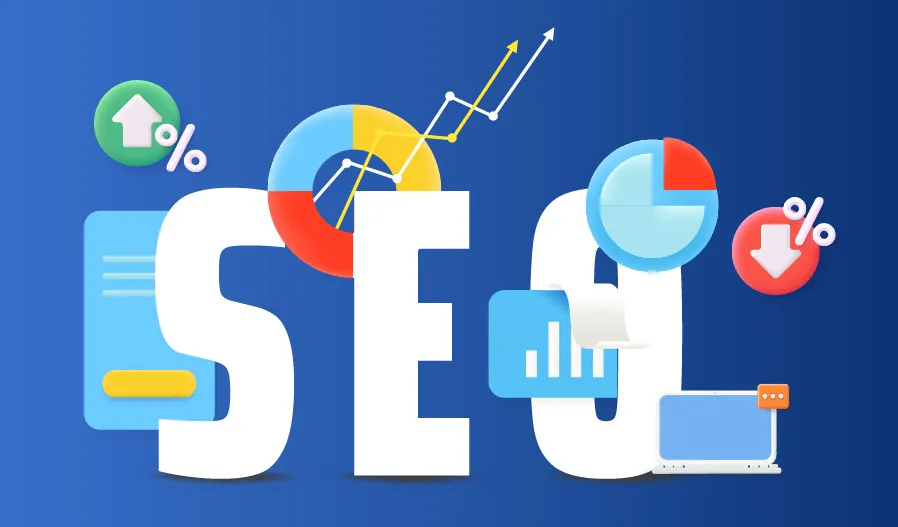
সাবটাইটেলিং কেবল ব্যবহারকারীর দেখার অভিজ্ঞতাই উন্নত করে না, বরং একটি ভিডিওর অনলাইন এক্সপোজারও বাড়ায়। গবেষণা দেখায় যে সাবটাইটেলযুক্ত ভিডিওগুলিতে সাধারণত সাবটাইটেলবিহীন ভিডিওর তুলনায় কমপ্লিটেশন এবং ক্লিক-থ্রু রেট বেশি থাকে, বিশেষ করে শিক্ষামূলক বিষয়বস্তু, ই-কমার্স প্রচার এবং ব্র্যান্ড যোগাযোগের জন্য।.
- সাবটাইটেল দর্শকদের জন্য সহজ করে তোলে বিষয়বস্তুর যুক্তি অনুসরণ করুন, বিশেষ করে আরও জটিল বা দ্রুতগতির ভিডিওগুলিতে;
- সাবটাইটেলের টেক্সট তথ্য ক্রল করা যেতে পারে সার্চ ইঞ্জিন, যা ইউটিউব, গুগল এবং অন্যান্য প্ল্যাটফর্মে ভিডিওর ইনডেক্সিং উন্নত করে;
- সাবটাইটেল যোগ করার পর, ভিডিওগুলি কীওয়ার্ড-সম্পর্কিত অনুসন্ধান ফলাফলে প্রদর্শিত হওয়ার সম্ভাবনা বেশি থাকে, যা বৃদ্ধিতে সাহায্য করে স্বাভাবিক ট্র্যাফিক এবং রূপান্তর.
③. বহুভাষিক অনুবাদ এবং বিষয়বস্তু স্থানীয়করণ
"বিদেশে যাওয়া" এবং বিশ্বব্যাপী প্রচারের জন্য সাবটাইটেল ফাইলের বহুভাষিক অনুবাদ একটি গুরুত্বপূর্ণ হাতিয়ার:
সাবটাইটেলিংয়ের মাধ্যমে ভাষার সহজলভ্যতা হল উদ্যোগ এবং ব্যক্তিদের জন্য আন্তঃসাংস্কৃতিক যোগাযোগের ভিত্তি।.
- নির্মাতারা ভিডিওগুলিকে অনুবাদ করতে সাবটাইটেল ফাইল ব্যবহার করতে পারেন ইংরেজী, জাপানি, ফরাসি, স্পেনীয়, এবং অন্যান্য ভাষা বিভিন্ন বাজারের জন্য।.
- AI টুল ব্যবহার করে যেমন ইজিসাব দ্রুত কাঁচা অডিও ট্রান্সক্রাইব করা এবং বহুভাষিক সাবটাইটেল তৈরি করা উৎপাদনশীলতাকে ব্যাপকভাবে উন্নত করে;
- স্থানীয় সাবটাইটেলিং কোম্পানিগুলিকে দ্রুত ** বিদেশী বাজার খুলতে এবং ব্যবহারকারীর আস্থা এবং ব্র্যান্ড সচেতনতা বৃদ্ধি করতে** সাহায্য করতে পারে।.
সাবটাইটেল ফাইল কি বৈধ নাকি অবৈধ?
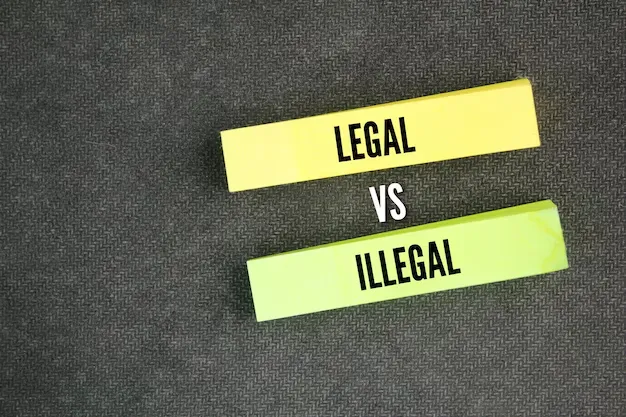
১. কপিরাইটের মৌলিক নীতি: সাবটাইটেলের কপিরাইট কার?
বেশিরভাগ দেশের বৌদ্ধিক সম্পত্তি আইন অনুসারে, একটি সাবটাইটেল ফাইল যা সংলাপ, অডিও, গানের কথা, ইত্যাদি।. কোনও বিদ্যমান চলচ্চিত্র বা টেলিভিশনের কাজ থেকে প্রাপ্ত তথ্য সাধারণত "উৎপাদনমূলক কাজ" বা সেই কাজের "নিষ্কাশন" হিসাবে বিবেচিত হয়, যার অর্থ হল:
- মূল সিনেমা বা টেলিভিশন কাজের কপিরাইট হল মূল লেখক/প্রযোজনা সংস্থা;
- এই ধরনের কন্টেন্টের অননুমোদিত উত্তোলন বা ভাগাভাগি** (যদিও এটি শুধুমাত্র একটি সাবটাইটেলই হয়) মূল কাজের লঙ্ঘন হতে পারে;
- বিশেষ করে, বাণিজ্যিক ব্যবহারের জন্য অথবা ব্যাপক বিতরণের জন্য ডাউনলোড সাইটে সাবটাইটেল পোস্ট করা একটি আইনি ঝুঁকি।.
সহজ কথায়: যখনই সাবটাইটেলযুক্ত সামগ্রী কোনও কপিরাইটযুক্ত ভিডিও/অডিও কাজ থেকে আসে এবং অনুমোদন ছাড়াই তৈরি বা বিতরণ করা হয় তখন লঙ্ঘনের ঝুঁকি থাকে।.
2. "ন্যায্য ব্যবহার" এর ব্যতিক্রম“
তবে, কিছু নির্দিষ্ট দেশে (যেমন, মার্কিন যুক্তরাষ্ট্র), কপিরাইট আইন "“ন্যায্য ব্যবহার / যুক্তিসঙ্গত ব্যবহার”, এবং নিম্নলিখিত পরিস্থিতিতে সাবটাইটেল ফাইলের উৎপাদন বা ব্যবহার বৈধ বলে বিবেচিত হতে পারে:
- শিক্ষাগত উদ্দেশ্য: শিক্ষকরা শ্রেণীকক্ষের নির্দেশনার জন্য ক্যাপশন তৈরি করেন এবং জনসাধারণের কাছে বিতরণ করেন না;
- ব্যক্তিগত শিক্ষার উদ্দেশ্য: ভাষা শেখার উদ্দেশ্যে ব্যক্তিরা নিজেরাই সাবটাইটেল প্রতিলিপি করে এবং ব্যবহার করে এবং বিতরণ করে না;
- সমালোচনা বা গবেষণা: অ-বাণিজ্যিক ব্যবহারের জন্য যেমন সমালোচনা, উদ্ধৃতি, একাডেমিক গবেষণা, চলচ্চিত্র পর্যালোচনা ইত্যাদি;
- অ-বাণিজ্যিক ব্যবহার এবং মূল লেখকের আর্থিক ক্ষতি না করেই.
তবে, এটা মনে রাখা উচিত যে “"ন্যায্য ব্যবহার" সব দেশে প্রযোজ্য নয়, এবং রায়ের মান তুলনামূলকভাবে অস্পষ্ট, এবং একটি নির্দিষ্ট মাত্রার আইনি অনিশ্চয়তা রয়েছে।.
৩. "অবৈধ সাবটাইটেল ডাউনলোড" এবং "স্ব-শিরোনামকরণ" এর মধ্যে আইনি পার্থক্য“
- সাবটাইটেল ফাইল অবৈধভাবে ডাউনলোড করা (যেমন, কোনও রিসোর্স সাইট থেকে অননুমোদিত সাবটাইটেল ডাউনলোড করা) প্রায়শই স্পষ্টতই লঙ্ঘনকারী, বিশেষ করে যখন সাবটাইটেলে চলচ্চিত্র বা টেলিভিশন সংলাপ বা গানের কথার মতো মৌলিক বিষয়বস্তু থাকে;
- আপনার নিজস্ব সাবটাইটেল তৈরি করা (যেমন, আপনার ব্যক্তিগত ভিডিওর জন্য সাবটাইটেল তৈরি করার জন্য ট্রান্সক্রাইবিং, অনুবাদ, অথবা ইজিসাবের মতো একটি AI টুল ব্যবহার করা) ব্যবহারকারীর একটি মৌলিক কাজ, এবং যদি সামগ্রীটি অন্য ব্যক্তির কপিরাইটযুক্ত কাজ জড়িত না থাকে তবে সাধারণত লঙ্ঘনকারী হয় না;
- আপনার নিজস্ব মূল ভিডিওর জন্য সাবটাইটেল তৈরি করার জন্য যদি আপনি একটি সাবটাইটেলিং টুল (যেমন Easysub) ব্যবহার করেন, তাহলে আপনি এটি একাধিক ভাষায় পুনঃপ্রকাশ বা অনুবাদ করলেও কপিরাইট আপনার কাছেই থাকবে।.
সারসংক্ষেপ পরামর্শ: অজানা উৎস থেকে সাবটাইটেল ফাইল ডাউনলোড বা ব্যবহার করা এড়িয়ে চলুন, বিশেষ করে চলচ্চিত্র, সঙ্গীত এবং অ্যানিমেশনের জন্য; যদি আপনার সাবটাইটেল তৈরি করার প্রয়োজন হয়, তাহলে আপনার নিজস্ব সাবটাইটেল তৈরি, অনুবাদ এবং ব্যবহার করার জন্য স্বয়ংক্রিয় সরঞ্জাম ব্যবহার করার পরামর্শ দেওয়া হচ্ছে।.
সারাংশ:
সাবটাইটেল ফাইলগুলি নিজেরাই অবৈধ নয়, মূল কথা হলো, এতে অন্য কারো কপিরাইটযুক্ত কন্টেন্টের অননুমোদিত ব্যবহার জড়িত কিনা।. । যতক্ষণ না আপনি পাইরেটেড সাবটাইটেল ডাউনলোড করেন, লঙ্ঘনকারী কন্টেন্ট বিতরণ করেন না এবং শুধুমাত্র ব্যক্তিগত বা শিক্ষামূলক উদ্দেশ্যে ব্যবহার করেন, ততক্ষণ আপনি সাধারণত আইনের আওতায় থাকেন। এবং আপনার নিজস্ব মূল কন্টেন্টের জন্য সাবটাইটেল তৈরি এবং পরিচালনা করার জন্য Easysub এর মতো একটি টুল ব্যবহার করা আইনি, নিরাপদ এবং দক্ষ.
সাবটাইটেল ফাইল কখন অবৈধ হয়ে যায়?
যদিও সাবটাইটেলগুলি কেবল টেক্সট তথ্য, তবুও সাবটাইটেল ফাইলগুলি কপিরাইট লঙ্ঘনও হতে পারে যখন এটি আসে অন্য ব্যক্তির কপিরাইটযুক্ত কন্টেন্টের অননুমোদিত ব্যবহার, পরিবর্তন বা বিতরণ. নিচে লঙ্ঘনের কয়েকটি সাধারণ পরিস্থিতি দেওয়া হল:
①. জলদস্যু ওয়েবসাইট থেকে সাবটাইটেল ডাউনলোড করা কি বেআইনি?
হ্যাঁ, সাধারণত আছে স্পষ্ট কপিরাইট সমস্যা পাইরেটেড রিসোর্স সাইট থেকে সাবটাইটেল ফাইল ডাউনলোড করার ক্ষেত্রে, বিশেষ করে যখন সাবটাইটেল কন্টেন্টটি এখান থেকে আসে:
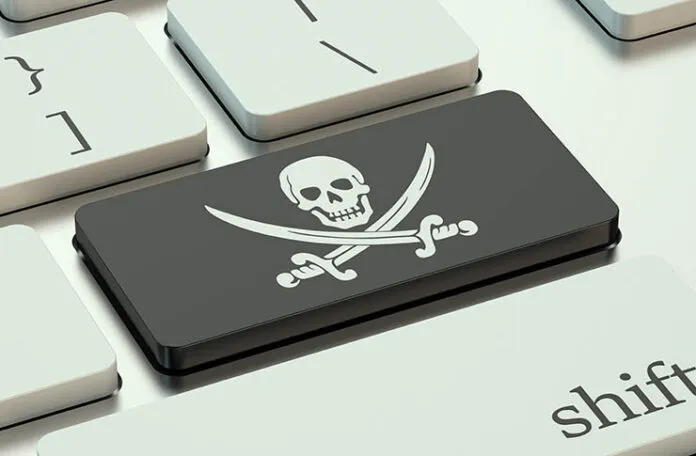
- সিনেমা, টিভি শো, অ্যানিমে, তথ্যচিত্র ইত্যাদি যা বর্তমানে সম্প্রচারিত হচ্ছে অথবা এখনও কপিরাইট সুরক্ষার অধীনে রয়েছে;
- অফিসিয়াল অনুবাদিত সাবটাইটেল বা সাবটাইটেল যা উৎস থেকে বের করে আলাদাভাবে বিতরণ করা হয়েছে;
- সাবটাইটেলযুক্ত লেখা যাতে সংলাপ, গানের কথা, ব্র্যান্ডেড লাইন ইত্যাদি থাকে এবং কপিরাইটযুক্ত কন্টেন্ট।.
এটি সাধারণত করা হয় মূল লেখক বা কপিরাইট ধারকের অনুমতি ব্যতীত এবং মূল কাজের "বেআইনি পুনরুৎপাদন এবং বিতরণ" গঠন করে। এমনকি যদি আপনি শুধুমাত্র ব্যক্তিগত দেখার জন্য ডাউনলোড করেন, তবুও এটি আইনত কপিরাইট লঙ্ঘন হিসাবে বিবেচিত হতে পারে, বিশেষ করে ইউরোপ, আমেরিকা, জাপান ইত্যাদির মতো কঠোর কপিরাইট সুরক্ষাযুক্ত দেশগুলিতে। ঝুঁকি বেশি।.
②. পাইরেটেড ভিডিওতে সাবটাইটেল যোগ করা কি বেআইনি?
হ্যাঁ, এই ধরনের আচরণ সাধারণত পাইরেটেড কন্টেন্ট বিতরণে সহায়তা করা, এইভাবে পরোক্ষভাবে কপিরাইট লঙ্ঘন। আইন লঙ্ঘনের নির্দিষ্ট ঝুঁকি প্রতিফলিত হয়:
- পাইরেটেড ভিডিও রিসোর্সে সাবটাইটেল যোগ করা এবং বিতরণ করা এটি নিজেই লঙ্ঘনকারী সম্পদের একটি প্রক্রিয়াকরণ এবং গৌণ বন্টন;
- সাবটাইটেলগুলি আসল হোক বা না হোক, যতক্ষণ না সেগুলি একটি অবৈধ ভিডিওর সাথে বিতরণ করা হয়, ততক্ষণ সেগুলি লঙ্ঘনে সহায়তাকারী হিসাবে বিবেচিত হতে পারে;
- কিছু দেশে (যেমন, মার্কিন যুক্তরাষ্ট্র, জার্মানি), এই ধরনের আচরণ অনুসরণ করা যেতে পারে এবং এমনকি ফৌজদারি দায়বদ্ধতাও তৈরি করতে পারে।.
অনুস্মারক: সাবটাইটেলগুলি আপনার দ্বারা তৈরি হলেও, ভিডিওটি পাইরেটেড হলেও, এই ধরনের সম্মিলিত বিতরণ আচরণ এখনও আইনি ঝুঁকি বহন করে।.
③. অফিসিয়াল সাবটাইটেল পরিবর্তন এবং শেয়ার করা কি কপিরাইট লঙ্ঘন করে?
সাধারণত এটি লঙ্ঘন, যদি না অনুমোদিত হয়। অফিসিয়াল সাবটাইটেল (যেমন, Netflix, Disney+, NHK দ্বারা প্রদত্ত) নিজেই কাজের অংশ এবং স্বাধীনভাবে কপিরাইটযুক্ত:
- অফিসিয়াল সাবটাইটেলের অননুমোদিত নিষ্কাশন, পরিবর্তন এবং পুনর্বন্টন মূল কাজটি পুনর্নির্মাণ এবং বিতরণের সমতুল্য;
- অফিসিয়াল সাবটাইটেলের অননুমোদিত নিষ্কাশন এবং পুনর্বন্টন পুনর্নির্মাণ এবং প্রচারের সমতুল্য মূল কাজের;
- বিশেষ করে, যেসব সাবটাইটেল মূল বিষয়বস্তু যেমন চরিত্রের নাম, নাটকের পরিভাষা এবং প্লট সেটিংস ধরে রাখে, সেগুলোকে "উৎপাদিত কাজ" হিসেবে স্বীকৃতি দেওয়ার সম্ভাবনা বেশি থাকে।.
সারসংক্ষেপ পরামর্শ: অজানা উৎস বা অফিসিয়াল সাবটাইটেল থেকে আসা কোনও সাবটাইটেল ফাইল পরিবর্তন বা শেয়ার করবেন না। ব্যক্তিগত ব্যবহারের জন্য নয়। যদি আপনার অফিসিয়াল সাবটাইটেল ব্যবহার করার প্রয়োজন হয়, তাহলে অনুমোদনের জন্য আপনার কপিরাইট ধারকের সাথে যোগাযোগ করা উচিত অথবা কপিরাইট লঙ্ঘন এড়াতে আপনার নিজস্ব সাবটাইটেল তৈরি করতে AI টুল (যেমন Easysub) ব্যবহার করা উচিত।.
ফ্যান-মেড সাবটাইটেল (ফ্যানসাব) কি অবৈধ?
ফ্যান-মেড সাবটাইটেল (ফ্যানসাব) হল অনানুষ্ঠানিক ভক্ত সংস্থা বা ব্যক্তিদের দ্বারা তৈরি সাবটাইটেল, এবং সাধারণত জাপানি নাটক, অ্যানিমে, কোরিয়ান নাটক এবং আমেরিকান নাটকের মতো বিদেশী চলচ্চিত্র এবং টেলিভিশন সামগ্রীর লোক অনুবাদে পাওয়া যায়। যদিও ফ্যানসাবগুলির একটি বিশাল দর্শক ভিত্তি এবং বিশ্বব্যাপী ইতিবাচক তাৎপর্য রয়েছে (যেমন, দর্শকদের ভাষাগত বাধা অতিক্রম করতে সহায়তা করা এবং সাংস্কৃতিক সম্প্রচার প্রচার করা), আইনি দৃষ্টিকোণ থেকে, ফ্যানসাবগুলি সম্পূর্ণরূপে আইনি নয়, এবং বেশিরভাগ ক্ষেত্রে, কপিরাইট বিরোধ এবং আইনি ঝুঁকি থাকে.
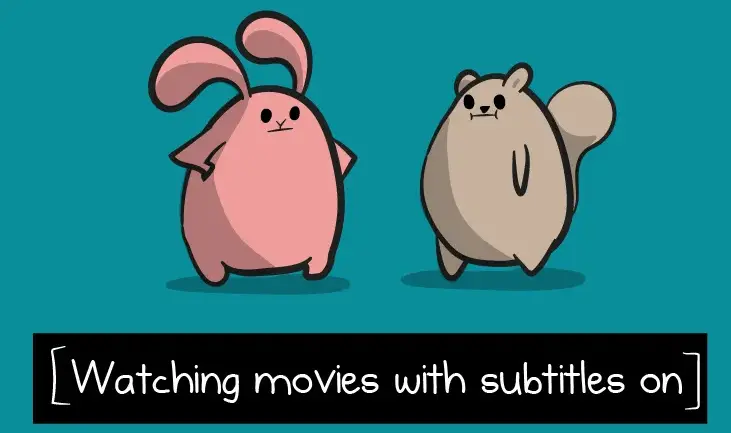
I. ফ্যান সাবটাইটেলিং নিয়ে আইনি বিরোধ
যদিও এগুলি প্রায়শই শখের বশে বা জনসাধারণের কল্যাণের জন্য তৈরি করা হয়, তবে এগুলি মূলত কপিরাইটযুক্ত সামগ্রীর "অনুবাদ, পুনর্নির্মাণ এবং বিতরণ" এবং নিম্নলিখিত লঙ্ঘনগুলি জড়িত:
- মূল স্ক্রিপ্ট বা সংলাপের অননুমোদিত অনুবাদ;
- মূল ভিডিও থেকে অডিও তথ্য (সংলাপ এবং লাইন) অননুমোদিতভাবে নিষ্কাশন এবং প্রক্রিয়াকরণ;
- পাইরেটেড ভিডিওর সাথে প্রকাশনা (যেমন, বহিরাগত সাবটাইটেল বা এমবেডেড সাবটাইটেল);
- সাবটাইটেল প্ল্যাটফর্ম বা ওয়েব ড্রাইভের মাধ্যমে সাবটাইটেল ফাইল বিতরণ করা.
এই ক্ষেত্রে, ফ্যান সাবটাইটেলগুলি প্রায়শই বিবেচনা করা হয় "“অননুমোদিত ডেরিভেটিভ কাজ” এবং মূল কপিরাইট ধারকের অধিকার লঙ্ঘন করে।.
II. বিভিন্ন দেশ/অঞ্চলে আইনের পার্থক্য
বিশ্বজুড়ে ভক্তদের ক্যাপশন দেওয়ার প্রতি মনোভাব ভিন্ন, তবে বেশিরভাগ দেশ এটিকে সম্ভাব্য লঙ্ঘন হিসেবে দেখে:
- 🇺🇸 মার্কিন যুক্তরাষ্ট্র (ডিএমসিএ): মার্কিন ডিজিটাল মিলেনিয়াম কপিরাইট আইন (DMCA) বলে যে কপিরাইটযুক্ত কন্টেন্টের যেকোনো অননুমোদিত পুনরুৎপাদন, অনুবাদ, বা বিতরণ কপিরাইট লঙ্ঘন, এমনকি লাভের জন্য না হলেও, এবং সাবটাইটেল প্রযোজক এবং প্ল্যাটফর্মগুলি কপিরাইট সতর্কতা পেতে পারে অথবা আইনি ব্যবস্থা নিতে পারে।.
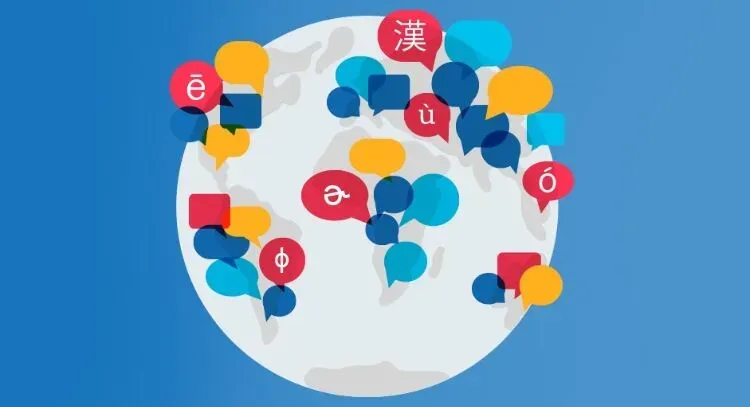
- 🇪🇺 ইইউ (কপিরাইট সংক্রান্ত নির্দেশিকা ২০১৯): নতুন কপিরাইট আইন প্ল্যাটফর্মের দায়বদ্ধতার উপর জোর দেয়, এবং সাবটাইটেল বিতরণ প্ল্যাটফর্মগুলিকে লঙ্ঘনকারী সাবটাইটেলগুলি সক্রিয়ভাবে অপসারণ করতে ব্যর্থ হওয়ার জন্য যৌথভাবে এবং পৃথকভাবে দায়ী করা যেতে পারে।.
- 🇯🇵 এর বিবরণ জাপান: অ্যানিমে, চলচ্চিত্র এবং টেলিভিশনের মতো বিষয়বস্তুর জন্য কঠোর সুরক্ষা** ফ্যান সাবটাইটেলগুলি কপিরাইট সংস্থাগুলির কাছ থেকে মামলা বা সতর্কীকরণ চিঠির সম্মুখীন হতে পারে, এমনকি যদি সেগুলি শুধুমাত্র ছোট পরিসরে বিতরণ করা হয়**।.
- 🇨🇳 এর বিবরণ চীনের মূল ভূখণ্ড: ফ্যান সাবটাইটেল গ্রুপগুলি একসময় সক্রিয় ছিল, কিন্তু সাম্প্রতিক বছরগুলিতে সম্পর্কিত ওয়েবসাইটগুলি প্রায়শই বন্ধ হয়ে গেছে, এবং সাবটাইটেল প্রযোজকদের ইন্টারনেটে তথ্য প্রচারের অধিকার লঙ্ঘনের জন্য দেওয়ানি বা এমনকি ফৌজদারিভাবেও দায়ী করা যেতে পারে।.
উপসংহার: যদিও অনেক দেশ ফ্যানসাবগুলিকে স্পষ্টভাবে অপরাধ হিসেবে গণ্য করে না, তবুও এটি কপিরাইট লঙ্ঘন, এবং বৃহৎ আকারের বিতরণ এবং নগদীকরণ জড়িত থাকলে আইনি ঝুঁকি দ্বিগুণ হয়ে যায়।.
III. ভক্তদের ক্যাপশন দেওয়ার সম্ভাব্য ঝুঁকি
ফ্যান ক্যাপশন তৈরি বা ব্যবহারের সম্ভাব্য আইনি পরিণতিগুলির মধ্যে রয়েছে:
- জারি করা হচ্ছে একটি লঙ্ঘনের সতর্কীকরণ পত্র বা নোটিশ কপিরাইট ধারক কর্তৃক;
- ফ্যান-ক্যাপশন বিতরণ প্ল্যাটফর্মটি বন্ধ করতে বলা হচ্ছে অথবা DMCA কর্তৃক নিষিদ্ধ করা হচ্ছে;
- গুরুতর ক্ষেত্রে, প্রযোজক বা ওয়েবমাস্টারের বিরুদ্ধে ক্ষতিপূরণের মামলা করা যেতে পারে বা দায়বদ্ধ করা যেতে পারে;
- গুরুতর ক্ষেত্রে, প্রযোজক বা ওয়েবমাস্টারদের বিরুদ্ধে ক্ষতিপূরণ বা প্রতিশোধের জন্য মামলা করা যেতে পারে। কিছু দেশে, এটি এমনকি পাইরেটেড কন্টেন্ট বিতরণে জড়িত থাকা.
✅ সুপারিশ:
- জনসমক্ষে ফ্যান সাবটাইটেল পোস্ট করা বা বিতরণ করা এড়িয়ে চলুন কপিরাইট ধারকের অনুমোদন ছাড়াই;
- ব্যক্তিগত অধ্যয়ন বা অ-জনসাধারণের যোগাযোগের উদ্দেশ্যে, আইনি ঝুঁকি তুলনামূলকভাবে কম, তবে সতর্কতা অবলম্বন করা উচিত;
- AI স্বয়ংক্রিয়ভাবে তৈরি সাবটাইটেল টুল ব্যবহার করার পরামর্শ দেওয়া হচ্ছে যেমন ইজিসাব পাবলিকলি লাইসেন্সপ্রাপ্ত ভিডিওগুলির জন্য ইংরেজি সাবটাইটেল তৈরি করতে, কপিরাইট ঝুঁকি এড়াতে এবং সাবটাইটেল উৎপাদন দক্ষতা উন্নত করতে.
সাবটাইটেল ফাইলগুলি কীভাবে বৈধভাবে ব্যবহার করবেন?
ক. আপনার তৈরি করা ভিডিও সাবটাইটেলিং (১০০১TP৩টি আইনি)
যদি ভিডিও কন্টেন্টটি মূলত আপনার দ্বারা চিত্রায়িত বা কপিরাইটযুক্ত হয়, তাহলে আপনার সাবটাইটেল করার সম্পূর্ণ অধিকার আছে। এই ক্ষেত্রে, সাবটাইটেলগুলি বিভিন্ন উপায়ে পাওয়া যেতে পারে:
- ম্যানুয়াল ট্রান্সক্রিপশন এবং অনুবাদ: ম্যানুয়ালি নির্দেশ, অনুবাদ এবং সাবটাইটেল তৈরি;
- এআই টুল ব্যবহার করে স্বয়ংক্রিয় সাবটাইটেল তৈরি: যেমন একটি AI প্ল্যাটফর্ম ব্যবহার করা যেমন ইজিসাব, আপনার ভিডিও আপলোড করুন, স্বয়ংক্রিয়ভাবে বক্তৃতা সনাক্ত করুন এবং সিঙ্ক্রোনাইজড সাবটাইটেল তৈরি করুন, এমনকি ইংরেজির মতো একাধিক ভাষায় অনুবাদ করুন;
- বাহ্যিক বা এমবেডেড সাবটাইটেল উপলব্ধ: আপনি ফাইল হিসেবে সাবটাইটেল আপলোড করতে পারেন (যেমন.
.srt সম্পর্কে) অথবা সরাসরি ভিডিওতে (হার্ডকোড) বার্ন করুন, উভয়ই ব্যবহার করা বৈধ। প্রযোজ্য পরিস্থিতি: শিক্ষামূলক ভিডিও, কর্পোরেট ভিডিও, ব্যক্তিগত ভ্লগ, প্রশিক্ষণ কোর্স ইত্যাদি।.
খ. সর্বজনীনভাবে লাইসেন্সপ্রাপ্ত সাবটাইটেল ফাইলের ব্যবহার (যেমন, CC লাইসেন্স)
কিছু ভিডিও প্রযোজক বা সাবটাইটেল গ্রুপ তাদের সাবটাইটেল ফাইলগুলিকে "“ক্রিয়েটিভ কমন্স লাইসেন্স (সিসি লাইসেন্স)”", যা অন্যদের সাবটাইটেল কন্টেন্ট আইনত ব্যবহার, সংশোধন এবং পুনঃবিতরণ করার অনুমতি দেয়। সাধারণ প্ল্যাটফর্মগুলির মধ্যে রয়েছে:
- ইউটিউব ("কমিউনিটি কন্ট্রিবিউটেড সাবটাইটেলগুলিকে অনুমতি দিন" তে সেট করা);
- ওপেনসাবটাইটেল (CC লাইসেন্সের বিবরণ সহ কিছু সাবটাইটেল);
- একাডেমিক ওপেন কোর্স প্ল্যাটফর্ম (যেমন কোর্সেরা, এডিএক্স, এমআইটি ওসিডব্লিউ);
এই সাবটাইটেল ফাইলগুলি ব্যবহার করার আগে, নিশ্চিত করুন:
- লাইসেন্সের শর্তাবলী পরীক্ষা করুন (বাণিজ্যিক ব্যবহার অনুমোদিত কিনা, অ্যাট্রিবিউশন প্রয়োজন কিনা, ইত্যাদি);
- মূল লেখকের তথ্য সংরক্ষণ করুন (যদি চুক্তি অনুসারে প্রয়োজন হয়);
- মূল হিসেবে উপস্থাপনের জন্য কোনও বিষয়বস্তু পরিবর্তন করা যাবে না.
প্রযোজ্য পরিস্থিতি: শিক্ষাগত দ্বিতীয় সৃষ্টি, শিক্ষাদান সম্পদ সংগঠন, আন্তঃভাষা প্রচার।.
গ. সাবটাইটেল ফাইলগুলিতে আইনি অ্যাক্সেস
স্ব-উৎপাদন বা সর্বজনীনভাবে লাইসেন্সপ্রাপ্ত সামগ্রী ব্যবহার করার পাশাপাশি, বেশ কয়েকটি রয়েছে সাবটাইটেল পাওয়ার আইনি উপায় নিম্নরূপ:
- অফিসিয়াল প্ল্যাটফর্ম দ্বারা সরবরাহিত সাবটাইটেল ফাইলগুলি: যেমন নেটফ্লিক্স, অ্যামাজন প্রাইম, ইউটিউব এবং অন্যান্য প্ল্যাটফর্ম, কিছু ভিডিও অফিসিয়াল সাবটাইটেল ডাউনলোড বা ব্রাউজিং অ্যাক্সেস প্রদান করবে;
- ভিডিও লেখকরা সক্রিয়ভাবে শেয়ার করেন: কিছু নির্মাতা তাদের ভিডিও প্রোফাইল, ব্যক্তিগত ওয়েবসাইট এবং কমিউনিটিতে সাবটাইটেল ফাইল শেয়ার করবেন, যা ইঙ্গিত করবে যে সেগুলি ব্যবহারের জন্য উপলব্ধ;
- এআই অটো-জেনারেশন টুলস: আইনি AI টুল ব্যবহার করুন (যেমন Easysub, Kapwing, VEED.IO সম্পর্কে) অন্যদের সাবটাইটেল ডাউনলোড করার পরিবর্তে, আপনার মালিকানাধীন ভিডিওর বিষয়বস্তুর উপর ভিত্তি করে স্বয়ংক্রিয়ভাবে সাবটাইটেল তৈরি করতে;
- ওপেন সোর্স ম্যাটেরিয়াল সাইট: কিছু কপিরাইট-মুক্ত ভিডিও উপাদান সাইট (যেমন পেক্সেলস, পিক্সাবে) বাণিজ্যিকভাবে উপলব্ধ ভিডিও সাবটাইটেল বিবরণও অফার করে।.
মূল নোট: দয়া করে পাইরেটেড মুভি এবং টিভি স্টেশন বা অবৈধ রিসোর্স সাইট থেকে সাবটাইটেল ডাউনলোড করবেন না এবং পাবলিক ডিস্ট্রিবিউশন বা পুনঃসম্পাদনার জন্য ব্যবহার করবেন না, এমনকি যদি সেগুলি কেবল প্লাগ-ইন সাবটাইটেল হয়, তবে সেগুলি কপিরাইট লঙ্ঘন হতে পারে।.
সারাংশ পরামর্শ:
- সাবটাইটেলিং স্ব-প্রযোজিত ভিডিও সর্বদা সবচেয়ে নিরাপদ এবং সর্বাধিক প্রস্তাবিত উপায়;
- ব্যবহার করুন সাবটাইটেল ফাইল স্পষ্ট পাবলিক লাইসেন্স** সহ উপযুক্ত শর্তাবলী সহ;
- সাবটাইটেল ফাইল ডাউনলোড করা এড়িয়ে চলুন অজানা উৎস বা সন্দেহভাজন কপিরাইট লঙ্ঘনের সাইট থেকে;
- এআই প্ল্যাটফর্ম ব্যবহার করে, উচ্চমানের, বহুভাষিক সাবটাইটেল তৈরি করা, যেমন ইজিসাব, কেবল দক্ষই নয় বরং কপিরাইট বিরোধও এড়ায়।.
এআই সাবটাইটেল টুল কি আপনাকে আইনি ঝুঁকি এড়াতে সাহায্য করতে পারে?
সাবটাইটেল ব্যবহারের সময় অনেক ব্যবহারকারীর সবচেয়ে বড় উদ্বেগের বিষয় হল: আমি যে সাবটাইটেলগুলি যোগ করব তা কি কপিরাইট লঙ্ঘন করবে? আসলে, সম্মতির চাবিকাঠি সাবটাইটেলের উৎস এবং জেনারেশনের উপর নির্ভর করে।. কৃত্রিম বুদ্ধিমত্তা প্রযুক্তির বিকাশের সাথে সাথে, আরও বেশি সংখ্যক ব্যবহারকারী ভিডিওর জন্য স্বয়ংক্রিয়ভাবে সাবটাইটেল তৈরি করতে AI সাবটাইটেল সরঞ্জাম ব্যবহার করতে পছন্দ করছেন, যাতে কপিরাইট লঙ্ঘনের ঝুঁকি এড়ানো যায়।.
Easysub-এর মতো একটি AI সাবটাইটেলিং টুল ব্যবহারের শীর্ষ তিনটি আইনি সম্মতি সুবিধা এখানে দেওয়া হল:
I. AI টুল ব্যবহার করে স্বয়ংক্রিয়ভাবে "মূল সাবটাইটেল" তৈরি করে কপিরাইটযুক্ত সামগ্রীর ব্যবহার এড়িয়ে চলা
ঐতিহ্যবাহী সাবটাইটেল ফাইলগুলি প্রায়শই জটিল উৎস থেকে আসে, বিশেষ করে .srt সম্পর্কে, .গাধা, ইত্যাদি ইন্টারনেট থেকে ডাউনলোড করা হয়েছে, যার মধ্যে অনেকগুলি অননুমোদিত এবং কপিরাইট বিরোধের বিষয়। অন্যদিকে, AI টুল ব্যবহার করার সময়, আপনার নিজের আপলোড করা ভিডিও বা অডিও কন্টেন্টের উপর ভিত্তি করে সাবটাইটেলগুলি স্বয়ংক্রিয়ভাবে স্বীকৃত এবং তৈরি হয়, যা একটি আসল আউটপুট, এবং তৃতীয় পক্ষের সাবটাইটেল ফাইলের কপিরাইট লঙ্ঘন করবে না.
✔ তৈরি করা সাবটাইটেলগুলি বৈধ, যতক্ষণ না আপনার কাছে ভিডিও/অডিও সামগ্রীর কপিরাইট বা ব্যবহারের অধিকার থাকে।.
II. ইজিসাব কীভাবে ব্যবহারকারীদের আইনিভাবে সাবটাইটেল তৈরি করতে সাহায্য করে?
বিশ্বজুড়ে নির্মাতাদের জন্য ডিজাইন করা একটি এআই সাবটাইটেল জেনারেশন প্ল্যাটফর্ম হিসেবে, ইজিসাব একটি সহজ, দক্ষ এবং সঙ্গতিপূর্ণ সাবটাইটেল তৈরির সমাধান প্রদানের জন্য নিবেদিতপ্রাণ। এর কর্মপ্রবাহ ব্যবহারকারী-চালিত আপলোডিং এবং এআই স্বয়ংক্রিয়-স্বীকৃতিকে কেন্দ্র করে, যা আপনাকে দ্রুত এবং নিরাপদে আইনি সাবটাইটেল তৈরি করতে সহায়তা করে:
- আপনার তৈরি করা অথবা ব্যবহারের অধিকার থাকা ভিডিও/অডিও আপলোড করুন;
- ইজিসাব স্বয়ংক্রিয়ভাবে সিঙ্ক্রোনাইজড সাবটাইটেল তৈরি করতে স্পিচ রিকগনিশন সম্পাদন করে;
- ইংরেজি, জাপানি, চীনা এবং অন্যান্য ভাষায় বহু-ভাষার সাবটাইটেল তৈরি সমর্থন করার জন্য ঐচ্ছিকভাবে অনুবাদ ফাংশন সক্ষম বা নিষ্ক্রিয় করুন;
- সাধারণ ফর্ম্যাটে রপ্তানি করুন যেমন
.srt সম্পর্কে,.txt, ইত্যাদি। একাধিক প্ল্যাটফর্মে সহজে ব্যবহারের জন্য।.
এই মোডে, সাবটাইটেলের উৎস স্পষ্ট, কপিরাইট ক্লিয়ারের।, লঙ্ঘন সম্পর্কে চিন্তা করার দরকার নেই।.
iii. পাইরেটেড রিসোর্সের ব্যবহার এড়িয়ে পুরো প্রক্রিয়ায় স্বাধীনভাবে সাবটাইটেল তৈরি করুন।
এআই সাবটাইটেল টুলের সবচেয়ে বড় সুবিধাগুলির মধ্যে একটি হল: সম্পূর্ণ প্রক্রিয়াটি স্বাধীন নিয়ন্ত্রণের, বাইরের সাবটাইটেল রিসোর্সের উপর নির্ভর করবেন না। অন্যদের সাবটাইটেল ডাউনলোড করার জন্য আপনাকে সাবটাইটেল রিসোর্সে যেতে হবে না এবং কপিরাইট আইন লঙ্ঘন করার জন্য fansub ব্যবহার করার বিষয়ে আপনাকে চিন্তা করতে হবে না। Easysub আপনাকে এটি করতে সাহায্য করে:
- ✅ শুরু থেকেই আপনার নিজস্ব সাবটাইটেল কন্টেন্ট তৈরি করুন;
- ✅ অনুবাদ প্রক্রিয়াটি অন্যদের কন্টেন্ট অনুলিপি না করেই AI দ্বারা স্বয়ংক্রিয়ভাবে পরিচালিত হয়।;
- ✅ ম্যানুয়াল প্রুফরিডিং এবং অপ্টিমাইজেশনের জন্য একটি সম্পাদক সরবরাহ করুন আরও পেশাদার সাবটাইটেল ফাইল আউটপুট করতে।.
সারসংক্ষেপ পরামর্শ:
আপনি যদি আপনার ভিডিওগুলিকে সাবটাইটেল করতে চান আইনত এবং নিরাপদে জটিল আইনি পরিভাষার সাথে পরিচিত না হওয়া সত্ত্বেও, AI সাবটাইটেলিং টুল (বিশেষ করে Easysub) ব্যবহার করা অবশ্যই এটি করার একটি দক্ষ এবং বিশ্বাসযোগ্য উপায়:
- ✔ তৃতীয় পক্ষের সাবটাইটেলিং উৎস স্পর্শ করার কোন প্রয়োজন নেই;
- ✔ আপনার নিজস্ব ভিডিও কন্টেন্ট তৈরির উপর ভিত্তি করে সম্পূর্ণ প্রক্রিয়া;
- ✔ স্পষ্ট এবং নিয়ন্ত্রণযোগ্য কপিরাইট সহ কাস্টমাইজড অনুবাদ এবং সম্পাদনা সমর্থন করুন;
- ✔ সামাজিক প্ল্যাটফর্ম, শিক্ষাদানের বিষয়বস্তু, আন্তঃসীমান্ত ভিডিও এবং অন্যান্য ব্যবহারের ক্ষেত্রে প্রযোজ্য।.
আজকের ক্রমবর্ধমান বিশ্বায়িত কন্টেন্ট তৈরিতে, Easysub-এর মতো স্মার্ট টুলগুলিকে আপনার ভিডিও স্থানীয়করণ এবং সম্মতির জন্য একটি শক্তিশালী ভিত্তি হতে দিন।.
ইজিসাব: আপনার নিজস্ব সাবটাইটেল তৈরি করার আইনি উপায়
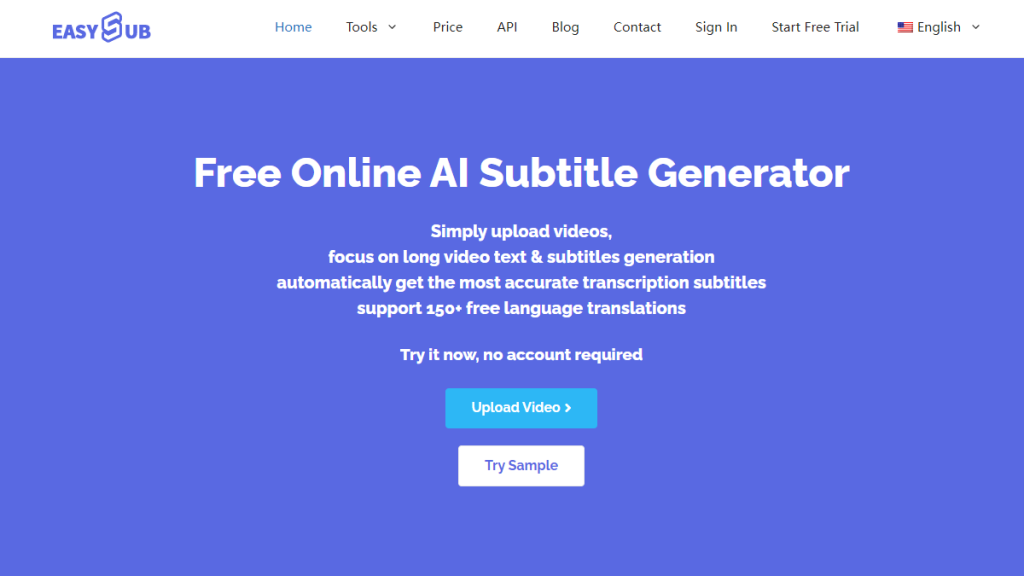
আজকের কপিরাইট-সচেতন কন্টেন্ট তৈরির যুগে, একটি নির্বাচন করা আইনি, নিরাপদ এবং সুবিধাজনক সাবটাইটেলিং সমাধান বিশেষভাবে গুরুত্বপূর্ণ।. ইজিসাব এটি একটি বুদ্ধিমান সাবটাইটেলিং প্ল্যাটফর্ম যা বিশ্বব্যাপী ব্যবহারকারীদের স্বয়ংক্রিয়ভাবে সাবটাইটেল তৈরি করতে, একাধিক ভাষায় অনুবাদ করতে এবং বিভিন্ন ফর্ম্যাটে রপ্তানি করতে সাহায্য করে, একই সাথে পাইরেটেড সাবটাইটেল ব্যবহারের সাথে সম্পর্কিত কপিরাইট লঙ্ঘনের ঝুঁকি এড়ায়।.
ইজিসাবের মূল বৈশিষ্ট্যগুলি
- বক্তৃতা বিষয়বস্তুর AI বুদ্ধিমান স্বীকৃতি: ভিডিও বা অডিও ফাইল আপলোড করা, স্বয়ংক্রিয়ভাবে বক্তৃতা সনাক্তকরণ এবং সিঙ্ক্রোনাইজড সাবটাইটেল তৈরি করা সমর্থন করে;
- ১০০+ ভাষায় সাবটাইটেল অনুবাদ সমর্থন করুন: ইংরেজি, চীনা, জাপানি, স্প্যানিশ ইত্যাদি ভাষায় বহু-ভাষার সাবটাইটেল রূপান্তর সহজেই উপলব্ধি করুন;
- WYSIWYG সাবটাইটেল এডিটর: পেশাদারিত্ব বাড়ানোর জন্য আপনি অনলাইনে টেক্সট কন্টেন্ট, টাইমলাইন এবং স্টাইল সামঞ্জস্য করতে পারেন;
- একাধিক স্ট্যান্ডার্ড ফর্ম্যাট রপ্তানি করুন: যেমন
.srt সম্পর্কে,.txt,.গাধা, ইত্যাদি, YouTube-এর সাথে খাপ খাইয়ে নেওয়া, ভিমিও, সাবটাইটেল সফটওয়্যার এবং অন্যান্য প্ল্যাটফর্ম; - ইউটিউব লিঙ্ক সরাসরি স্বীকৃতি সমর্থন করুন: ভিডিও ডাউনলোড করার দরকার নেই, আপনি সরাসরি সাবটাইটেল তৈরি করতে ভিডিও লিঙ্কটি পেস্ট করতে পারেন;
- প্রতিক্রিয়াশীল চীনা ইন্টারফেস: কোন প্রযুক্তিগত অভিজ্ঞতা নেই এমন ব্যবহারকারীরা সহজেই এটি পরিচালনা করতে পারবেন।.
বিনামূল্যে ট্রায়াল, কোনও পাইরেটেড সাবটাইটেল স্পর্শ করার দরকার নেই
- ইজিসাব প্রদান করে বিনামূল্যে ক্রেডিট ছোট ভিডিও নির্মাতা, শিক্ষক কর্মী এবং ভাষা শিক্ষার্থীদের দৈনন্দিন ব্যবহারের জন্য;
- পুরো প্রক্রিয়াটি ব্যবহারকারীদের নিজস্ব কন্টেন্টের উপর ভিত্তি করে, বাইরের সাবটাইটেল সাইট বা "ফ্যান সাবটাইটেল" এর উপর নির্ভর করার প্রয়োজন নেই;
- কোনও ডাউনলোড নেই, কোনও ওয়াটারমার্ক নেই, কোনও তৃতীয় পক্ষের প্লাগ-ইন নেই, আইনি সম্মতি, মানসিক শান্তি.
- -কোনও ডাউনলোড নেই, কোন ওয়াটারমার্ক নেই, কোন তৃতীয় পক্ষের প্লাগ-ইন নেই।.
✅ সুপারিশের সারাংশ:
আপনি যদি দ্রুত, নিরাপদে এবং আইনত সাবটাইটেল তৈরি করার উপায় খুঁজছেন, ইজিসাব আপনার জন্য আদর্শ পছন্দ:
- ✅ যেসব ব্যবহারকারীর ভিডিওর অধিকার আছে তারা স্বয়ংক্রিয় স্বীকৃতির জন্য সরাসরি ভিডিও আপলোড করতে পারবেন;
- ✅ যেসব ব্যবহারকারীর অনুবাদ বা সাবটাইটেল স্থানীয়করণের প্রয়োজন তারা এক ক্লিকেই বহুভাষিক সাবটাইটেল তৈরি করতে পারেন;
- ✅ কপিরাইট সম্মতি সম্পর্কে উদ্বিগ্ন শিক্ষামূলক প্ল্যাটফর্ম, সংস্থা বা উদ্যোগগুলি ইজিসাবের মাধ্যমে দক্ষতার সাথে এবং সম্মতিতে সামগ্রী আউটপুট করতে পারে;
আজই ইজিসাব ব্যবহার করুন সাবটাইটেল তৈরিকে তৃতীয় পক্ষের সম্পদের উপর কম নির্ভরশীল করে তোলা এবং কন্টেন্ট তৈরিকে আরও নিরাপদ, আরও পেশাদার এবং আরও দক্ষ করে তোলা।.
